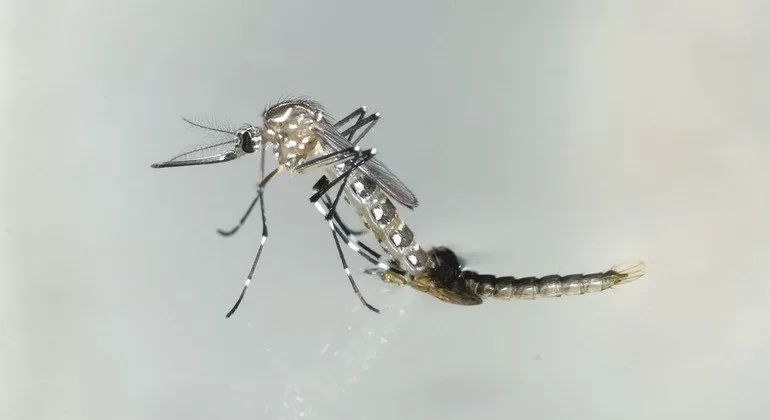
Johnson & Johnson’s newly developed pill for dengue fever demonstrated effectiveness in safeguarding against a strain of the virus in a small-scale human challenge trial in the United States. This was revealed through data presented by the company on Friday. Dengue, an escalating disease threat, presently lacks specific treatments, according to the company’s statement preceding the data presentation at the American Society of Tropical Medicine and Hygiene Annual Meeting in Chicago.
Marnix Van Loock, overseeing emerging pathogens research for J&J’s Janssen division, described the drug as the first-ever to exhibit antiviral activity against dengue. In human challenge trials, researchers intentionally expose healthy volunteers to a pathogen to assess a vaccine or treatment’s effectiveness or to gain deeper insights into the disease it causes.
Dengue fever, also known as “break bone fever” due to the intense joint pain and spasms experienced by some patients, has long plagued significant parts of Asia and Latin America. It results in millions of infections and tens of thousands of deaths annually. It is anticipated to spread further as climate change renders more areas conducive to the mosquitoes that transmit it, as stated by Jeremy Farrar, the World Health Organization’s chief scientist, earlier this month.
In a trial conducted in collaboration with Johns Hopkins Bloomberg School of Public Health, ten volunteers received a high dose of the J&J pill five days before being exposed to a specific type of dengue through injection. They continued taking the pill for an additional 21 days. Out of the ten, six exhibited no detectable dengue virus in their blood after exposure, and they displayed no signs of their immune system reacting to the virus over an 85-day monitoring period. Conversely, all five participants in a placebo group, who were also injected with dengue, showed detectable virus during testing. Participants in the trial received standard care from medical professionals when necessary, and a weakened version of the virus was used to minimize symptoms.
The promising initial data supports the ongoing Phase II trials of the pill, targeting prevention of the four different types of dengue in real-world settings where the disease is prevalent, as indicated by J&J. The subsequent phase will involve testing it as a treatment. The drug functions by inhibiting the activity of two viral proteins, thereby preventing the virus from replicating. All trial participants tolerated the drug well, according to J&J.
A crucial aspect for the future will be ensuring accessibility to the new drug, if proven effective on a larger scale, particularly in the low- and middle-income countries where it is most urgently needed. This echoes the challenge faced by the dengue vaccine supported by the WHO earlier this month. “We’re actively addressing this,” affirmed Van Loock, emphasizing that it is still in the early stages of development.











